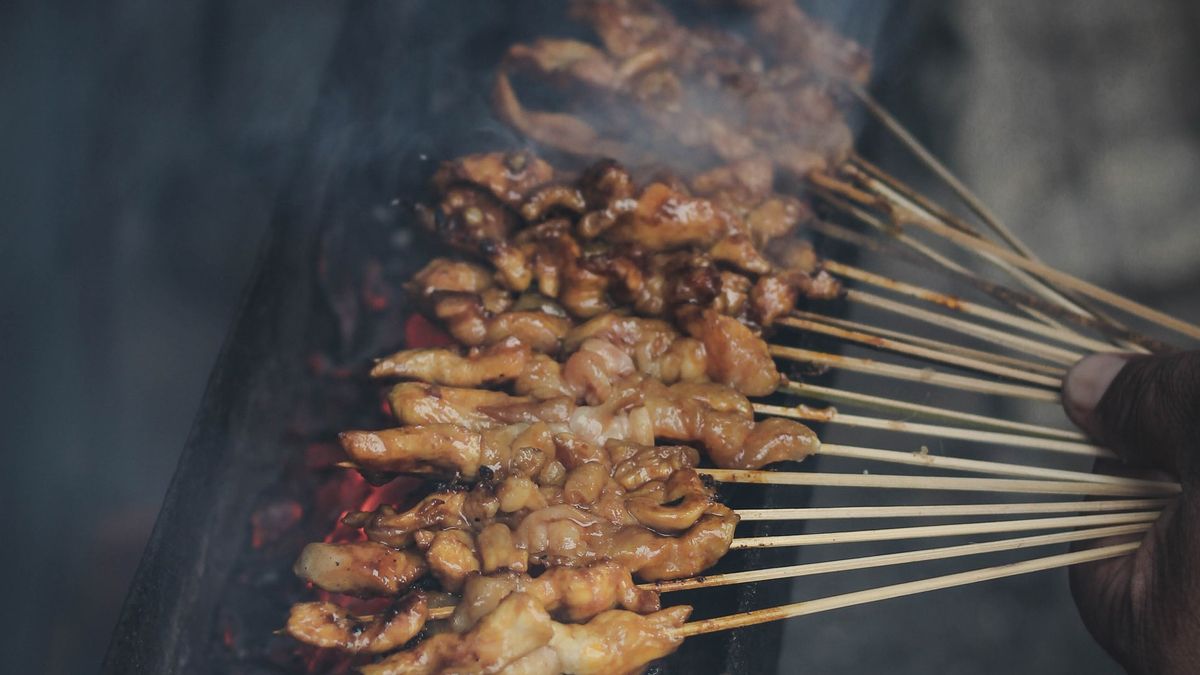JAKARTA - The government, through the Deputy for Tourism and Creative Economy Coordination, the Coordinating Ministry for Maritime Affairs and Investment (Kemenko Marves) is preparing a strategy so that Indonesian cuisine can be recognized internationally.
Assistant Deputy for Creative Economy Development at the Coordinating Ministry for Maritime Affairs and Investment Luhut Binsar Panjaitan (Kemenko Marves) Sartin Hia said that expanding Indonesian culinary sales to foreign countries is important. This is because this sector also contributes to the national economy.
"This is important because the culinary contribution to the national GDP is the largest among other creative economy subsectors, amounting to 41.47 percent," he said, in a written statement received by VOI, Friday, October 9.
Sartin acknowledged that Indonesian specialties are currently not well known to foreigners. Therefore, he hopes, ministries and agencies (K / L) can jointly formulate methods and build target audience interest through several strategies.
"If you only sell destinations, you may forget, but culinary and culture are second to none and may be remembered for life," he said.
The government has launched three major programs in the matrix of action plans for Indonesia's culinary strategy. First, Indonesia Spice Up the World, which is planned to be initiated in the African and Australian markets, because both have considerable potential to develop this strategy.
Through this program, said Sartin, Indonesian spices are expected to be increasingly recognized and attracted by local people abroad. So, it can improve the community's economy to Indonesian farmers as a producer of spices or raw material for spices. Moreover, Indonesia is one of the best spice producing countries, and is included in the world spice route.
Second, the Restaurant Gastro Diplomacy program, namely how to increase the capacity of existing Indonesian restaurants abroad, as well as to increase the number.
Sartin said this second strategy was carried out to answer President Joko Widodo's (Jokowi) hopes to increase the number of Indonesian restaurants abroad. Some of the action plans taken are strengthening nation branding, developing concepts / standards for Indonesian restaurants abroad, and establishing mandatory menus for promotions consisting of three mandatory menus.
"Then make the concept of incentives / ease of doing business, as well as promotion of synergies across ministries / agencies," he said.
Third, the Gastronomic Destinations program or strengthening domestic gastronomy to attract tourists.
Meanwhile, the Head of the Coordinating Ministry for Creative Economy Development Strategy Division, Liz Zeny Merry, said that not only abroad, domestic culinary delights also need to be a concern. Service and cleanliness are two important aspects in presenting local wisdom. The community must also support this program by continuing to eat local food, be proud, and be wise if you want Indonesian food to go global.
The government also invites to exchange spices and street food between islands, as well as urge regional diasporas to introduce regional culinary origin to their current residence.
According to him, this is interesting because the western and eastern regions of Indonesia also use different cooking ingredients. In the West, residents use more spices than those who live in the East.
To succeed these three strategies, said Zeny, readiness, continuity and consistency are needed in implementing them. Cooperation and collaboration from upstream to downstream are important factors.
"It is hoped that through this activity, K / L can work together in making Indonesian culinary worldwide," he said.
On the same occasion, the Indonesian Diaspora in the United States Robert Manan hopes that in promoting Indonesian food abroad the government can involve it through the diaspora.
From the tourist side, he said, tourists visiting the Indonesian region can receive culinary package offers. This package will collaborate the flavors of various food menus in the area.
"Cooking with Indonesian spices is not complicated, but can be rich in flavor," said Robert.
The English, Chinese, Japanese, Arabic, and French versions are automatically generated by the AI. So there may still be inaccuracies in translating, please always see Indonesian as our main language. (system supported by DigitalSiber.id)













